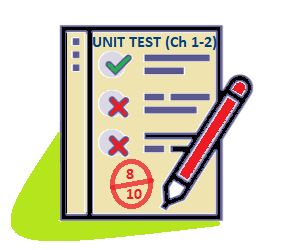Cyber Safety Necessary Guidelines for Children
Technology and internet advancements are transforming the world in ways that couldn't have been imagined. The emergence of digital innovations is providing new opportunities to connect, learn, and influence every aspect of human life. Children and the young generation have shown a greater ability to adapt and adopt digital devices and innovations
These days, people use devices and apps for a variety of functions, like self-expression, communication, networking, research, entertainment, and much more. The internet has enabled children to become active social agents and to mobilize for social, ecological, and other causes. They are increasingly able to project their voices with unprecedented reach.
The digital skills and knowledge are not evenly spread amongst all young people. The lack of research on this subject has prevented an in-depth analysis of who is most likely to lag in the opportunities offered by technological advances.
The exploration of new vistas and acquisition of rich experiences online requires a strong element of caution. After all, every light has its shadow. The technologies can be misused or overused in ways that are detrimental to the users and even non-users.
The concept of digital citizenship has emerged as a useful framework of various facets that need to be developed and strengthened. Nine key elements have been identified as detrimental to digital citizenship,
-
Digital Access

The telecom market is very competitive and rising each day with various mobile companies trying to offer the best and cheapest plans which have led to the world's cheapest mobile data packs being offered in India. A study conducted across 230 nations found that Indians pay an average of Rs.18 for a GB of data compared to the global average of Rs.600.
Internet usage in India had exceeded half a billion people by December 2018 and with the COVID -19 crisis it has increased manifolds. The usage is equal for both rural and urban India with mobile phones being the primary source to access the internet. These innovations have made lives easier than ever, but at the same time a rising number of cases of misuse, bank frauds, and exploitation have left users at the brink of higher risks than before.
- Barriers to Digital Space:
Over the past few years, digital access has become easier with devices becoming cheaper and more widely available. Some attributes that define the people who are more likely to have digital access include people who have ;
- Working knowledge of English, as most of the applications are presented in English.
- The knowledge of how to use a computer and related technologies.
- Easy access to digital devices and the internet.
- Ownership of the internet-connected digital devices enables the individual to receive and send information quickly compared to those who are not good at using technology.
Accessibility of the internet to gain information is uniform in both urban and rural areas. However, socio-cultural barriers have restricted access to some important groups in society to digital technologies. This is often due to a biased perception of women and girls not needing internet or for their safety they are restricted. Equal opportunities for all ages and gender needs to be established.
-
Digital Literacy
In this era of digitization, Digital Literacy is one of the essential skills. Digital literacy is the ability to use digital technology safely while staying within the bounds of social responsibility and etiquette. It allows children and young generation, to learn how to minimize risks and maximize benefits that come with digital technologies.
For example, many students enjoy playing online games, browsing social platforms, and various other websites. However, they need to understand the potential risks associated with these activities and accordingly take the necessary precautions. To become a digitally literate individual, it is important to understand the different components within digital literacy.

Eight Components of Digital Literacy:
- Functional Skills:Functional skills include the three R's: reading, writing, and arithmetic. To be a digitally literate individual, any student must know how to complete basic internet searches, work on spreadsheets, etc.
- Creativity:Digital technologies facilitate self-expression, creativity, and learning by enabling users to use different tools present.
- Critical Thinking and Evaluation:Critical thinking is essential to being digitally literate as you learn not to make information available on the internet at its face value.
- Cultural And Social Understanding:Children have to know how to negotiate information in text, visual, audio, and so on and how to represent meaning effectively and creatively through these media.
- Collaboration:Due to the interconnected world, the effects of what is happening in one place can have repercussions in other places, what is affecting a few can affect many more.
- Ability to find and Select Information:Everyone has easier access to virtually endless information. The challenge is to check the veracity of the sources as well as the information.
- Effective Communication:To be digitally literate, students must understand how to engage with different social platforms of communication safely and responsibly.
- E-Safety:e-safety refers to staying safe online. This requires that people of younger ages, children or anyone who is prone to get carried away with this misleading information should be protected and made aware of the harmful consequences of such content and services.
Digital Communication

Digital communication is the ability to read, understand and interpret digital processes to connect and interact with others. It can help build social relations in cyberspace. Students and children can stay in touch with friends, teachers or talk to new people.
Everyone needs to be conscious of the differences between real and virtual life and use technology in a way that it does not become a substitute for real-life communication but remains a smart additional channel which is not allowed to compromise basic good interpersonal communication skills essential for success in all aspects of our life.
At present, communication through instant messaging, texting, and posting comments online is common. It does not allow enough time to reflect, react and respond based on an informed understanding of conversations that are getting rude or mean. It is extremely important to learn to exit such conversations before they start affecting our mental health.
Opportunities & Risk:
Online activities provide an opportunity for expressing our opinions, testing attitudes, and exploring identity and social relationships. But many of us are tempted to take risks, often under the misperception that we are anonymous online.
The moderate use of the internet and a balance between offline and online lives is crucial for adding value to our life and work while minimizing risks and harm. Being smart online means being aware of the potential threats, opportunities, and risks that might occur without losing sight of the things that are most important in our lives.
Stranger Danger:

As in real life, there are strangers, acquaintances, and friends. How one communicates, how much and what kind of information is shared depends on the equation and level of trust people have in one another. It is important to choose online friends wisely. Do not trust them easily because you don't know who they actually are. There are many cases of people faking identities with not so good intentions.
Recognize Ways That People Online May Seek To Persuade You:
- Bribing:This can range from offering money and gifts. The gifts may even be in the form of points or lives and in-game rewards in an online game.
- Flattery:Constant attention and praise can be a way of winning the affection of the targeted child.
- Sexualized games and intimacy building:Gradual introduction of subtly sexual allusions in conversation or during play are used to test the child's vulnerability. If the child positively responds to his overtures, he will attempt to build further intimacy with the child.
- Desensitization:They try to desensitize the child to sexual acts by showing the child, pornography, and child sexual abuse imagery. Constant exposure to explicit content may'normalize' sexual behavior for the child and 'desensitize' her/him.
- Threats and blackmail:They employ forceful coercion to gain access to the child.
- Scattergun approach:When they do not know what the child will respond to, they may try all of the above to win the child's attention and interest.
- Digital Commerce

Digital commerce is about the users undertaking legitimate and legal exchanges using the Internet. The new digital economy has improved the choices of goods and services to the consumers. They can choose what they want from a wide array of products offered by an ever-expanding market of online vendors.
Opportunities and Risks:
E-commerce has both risks and an abundance of opportunities. One risk that individuals encounter is e-payment methods. The electronic payment system has grown increasingly over the last decades due to the growing spread of internet-based banking and shopping.
But online payments are susceptible to financial frauds, involving privacy breach, identity theft, and unauthorized access and siphoning of money. Individuals also face a form of fraud called phishing.
What Is Phishing Or Vishing?

A target or targets are contacted by email, telephone or text message by someone posing as a legitimate institution to lure individuals into providing sensitive data such as personally identifiable information, banking, and credit card details, and passwords.
Safety Measures:
- Install a robust anti-malware and antivirus solution.
- Be extra careful while visiting websites that ask for personal and financial information.
- Never click on suspicious email messages, especially those offering loans and too good to be true deals.
- Shop only at websites you trust. Check the security features of new websites and the authenticity and customer reviews of the business.
- Keep the receipt, order confirmation number, and postal tracking number safe.
- Report if you do not receive merchandise of the promised quality.
-
Digital Etiquettes

Digital etiquette is about being aware of and behaving in an appropriate, responsible, and ethical manner while using digital devices and technology. This includes shaping your digital reputation and being a responsible citizen of the communities in which you participate, from school groups to games, to social networks.
Golden Rules
- Be positive in your online behavior
- Treat others online the way you wish to be treated
- Learn to say and accept "No"
- Do not post anything that you would not like to last forever
Offline Etiquettes Are Also Online Etiquettes
Sometimes children use digital devices and technology in the wrong context. For example:
- Using mobile phones while talking to someone constitutes a social faux pas or even an insult to the other person.
- Texting while carrying on a conversation with someone is very rude and shows disrespect.
- Using mobile phones in classrooms, meetings and social gatherings should always be avoided. Using cell phones to text while attending a class is not appropriate
- Do not Ping others late at night. There is a time for everything. Do not disturb others at night. You may also not like to be disturbed when you are trying to rest.
- Playing audios and videos loudly in public. It is rude and inconsiderate to others.

Cyberbullying and Cyberstalking:A fine line separates bullying from teasing. Different people have a different threshold of tolerance for being able to take teasing or cyberbullying. Know and understand what cyberbullying is and never engage in that kind of behavior.
- Digital Health & Wellness

What Is Digital Health And Wellness?
Digital health and wellness is the appropriate use of technology like mobile phones, laptops, desktops, and tablets, one should make sure not to overuse these things and reach a point where it hurts and affects health. Excessive and improper use of technology could lead to lifestyle changes that affect everyday life negatively.
Risks of Digital Technology:
Mild use of digital technology is beneficial while excessive use can have a negative impact.

- Physical Health Problems and Obesity:As time spent on digital technology increases, time spent on physical activity is reduced, which might be a contributing factor to the child, and adolescent physical health problems.
- Limited Movement of Limbs:When people spend countless hours daily hunched over numerous types of handheld devices with their heads bent forward, they are at risk of developing "text neck."
- Eye Strain:Eye redness or irritation from staring at the bright backlight of screens for long periods, dry eyes due to reduced blinking, blurred vision, and general fatigue from staring at screens and straining to see small fonts and images are all symptoms of digital eye strain.
- Hearing Loss:Prolonged exposure to high volume sounds, especially with earplugs and phones, can contribute to hearing impairment. You can keep your hearing intact by following the 60/60 rule. Listen to any device at a maximum of only 60 percent of its full volume for a total of 60 minutes a day.
- Accidents:Avoid the use of online activities like selfie, social media use or any other online activities to avoid accidents while you are on the move. Traffic rules also have made this a punishable offense and invite fines.
Sharing Problems to Seek Solutions
Talking about the problem can be the first step to solving it. If something upsets you online or you are worried about a friend it can help to talk to someone. There are lots of people who can help you, such as friends, family members, and teachers.
- Peers:Communicate with your trusted friends, especially those who know more about the problems or have had similar experiences, without the fear of being judged.
- Parents:Speak with and seek help from parents if some kind of “family agreement†has been arrived at through dialogue within the family.
- School Counsellors or Teachers:If your school has a counselor, discuss your problem with them. They are there to answer your questions and provide guidance and assistance.
- Seeking Help From Experts:Professional expertise is available, although not everywhere, to assist with various problems related to misuse or excessive use of digital devices and technologies.
- Digital Rights, Freedoms & Responsibilities

What Are Digital Rights?
Digital rights are human rights in the digital era when the internet is increasingly being regarded as a right rather than a luxury. The rights to online privacy and freedom of expression are extensions of the equal rights laid out in theUnited Nations Universal Declaration of Human Rights.
As said in the Spiderman movie, "With great power comes great responsibility." The responsibilities include knowing and respecting the community standards and guidelines of all social media, video platforms, and online groups being used and staying within the parameters of these guidelines.
Do You Know Your Rights?

- Right to Education:The right to education has been recognized as a human right in several international conventions, including the International Covenant on Economic, Social and Cultural Rights which recognizes a right to free, compulsory primary education for all
- The Right to Privacy:Article 21 of the Constitution of India states that “No person shall be deprived of his life or personal liberty except according to the procedure established by law".
- Right to be Forgotten:The right to have data about oneself erased or withdrawn by service providers is the right to erase the past unwanted history of a user by the social media and search engines, is an evolving concept which is being discussed in several forums.
- Right to Be Safeguarded from Violence, Abuse, and Exploitation:Children have a legal right in international and most domestic laws to be safeguarded from abuse, including sexual abuse. The legal responsibility is on the government to prevent abusers from contacting children.
- Right to Freedom of Expression and the Right to Be Heard:In modern times it is widely accepted that the right to freedom of speech is the essence in the society and it must be safeguarded all the time. The first principle of a free society is an untrammeled flow of words in an open world.
- Children's Rights to Leisure and Age Appropriate Recreation:Children have a right to recreation and leisure as appropriate to their age, an education that will support the development of their full potential and prepare them for responsible life in a free society.
- Children's Right To Participation:This right includes the right of children to be consulted in all matters affecting them, which is seen in conjunction with the child’s freedom of expression, and freedom of association.Â
- The Right of Access to Redress and Justice:Children have a right to justice. Ensure that children have avenues for formal, including a legal complaint in cases where their online rights have been breached and the support to make effective use of these complaints procedures.
- The Right to Intellectual Property:The children have the right to intellectual property. The Indian Contract Act prevents minors from entering into a contract but permits the claim of intellectual property rights for their original creations through the legal process of claiming copyright.
-
Digital Security

What Is Digital Security?
Tools such as anti-virus software, biometrics, and personal devices, e.g., the secure chip in a credit card or an ePassport are digital security devices because they offer freedom to communicate, work, travel, and shop securely using your digital identity. Digital security is an all-encompassing term, which includes the tools to secure technology, assets, and personal identity in the online and mobile world.
Security of Devices:
Viruses on digital devices are malicious program codes that can corrupt the system and destroy the data within the computer.
- Malware:Malware is a type of malicious software designed to gain unauthorized access or to cause damage to a computer without the knowledge of the owner, stealing and even deleting sensitive data, altering or hijacking computer functions to monitor users' computer activity.
- Ransomware:Ransomware is a type of malicious software designed to extort money from the user. The attacker locks the victim’s computer system files or blocks access to files or the computer system typically through encryption until the ransom is paid.Â
- Hackers:A hacker is someone who will gain entry into a computer without permission, to use or exploit technology to cause harm, steal or destroy the data contained in it.
Preventing and Countering Threats and Risks:
- Install anti-virus software and ensure that is updated as regularly as possible. Some computers have built-in anti-virus software too.
- Regularly update software and operating systems Web browsers, plugins, and eve Office Suites. It is the most common way hackers and malware try to gain access to devices and your information.
- Use privacy settings on mobile phones, apps and social media platforms to select who can access your posts online. Try to restrict access to your profile to your friends only. Remember what you post online remains there almost forever.
- Verify if the Wi-Fi link is legitimate and safe Treat all Wi-Fi links with suspicion. Public Wi-Fi is inherently insecure, so be cautious. The Wi-Fi link could also be a bogus link set up by a cybercriminal trying to capture valuable, personal information from unsuspecting users.
- Verify if the website is legitimate/authentic Avoid logging into websites where there's a chance that your identity, passwords, or personal information may be compromised.
- Download apps from trusted sources like Google Play, AppStore, etc.

What You Can Do With Continued Harassment:
- Coming across cyber groomers, your first instinct should be to block and report them on the platform.
- Don't stay silent, speak to someone you trust who will be able to help. It can be a parent, a teacher, a friend, anyone whom you think can give you the support you need to see it through that you are no longer affected by the cyber attacker online.
- Know where to find help, understand how to report to service providers, and use blocking and deleting tools. If something happens that upsets you online, it is never too late to tell someone.
- Talk to your elders or parents, if your chat partner suggests keeping your conversation with them a secret. You can also report these to the child helpline in 1098.
- Digital Law
What Is Digital Law?

Digital law can be defined as the legal rights and restrictions governing technology use. Most users are unaware of the possible consequences of their online activities thereby need to be made aware of the rules and legal implications of using the internet.
The Following Are Some Actions That Are Unethical Or Illegal:
- Software or systems piracy.
- Downloading music and films without authorization or payment.
- Stealing other people's work (plagiarism and copyright infringement), personal data (identity theft).
- Illegal file sharing.
- Hacking into others' systems or networks.
- Creating destructive viruses or a worm that causes damage to other people's data and devices.
- Sending spam.
Illegal Activities Using Digital Technologies:

Plagiarism is an act of using or closely rewording the language and thoughts of another author without seeking their permission or representing another person's work as yours without giving credit to the author.
Stealing other people's work in the form of words, ideas, images, or data with permission is both illegal and unethical. When using online resources for school projects, assignments, essays, give credit or acknowledge the author(s) of the resource.
- Copyright infringement:It involves using someone else's work but not paying them for it. For example, using a photograph found online without seeking the photographer's permission or not paying for using it is a copyright violation.
- Sexting: Sexting is the sharing of sexually explicit texts, photos or videos of naked or semi-naked pictures of themselves or others through mobile or social media platforms.
- Online Child Abuse and Exploitation:There is a global consensus that child sexual abuse and exploitation is unacceptable offline or online. Under no circumstances is the production, distribution, and viewership of sexually explicit images of children are permitted.
- Defamation:Social media, email groups, bulletin boards, and other digital spaces enable widespread offensive content against a person to be posted. Offensive messages such as body shaming, name-calling on social media especially can be very hurtful.
Available Redressal Mechanisms
- Police: Log into the cybercrime portal of the Ministry of Home Affairs "www.cybercrime.gov.in". The Ministry of Home Affairs, Government of India, has set up a portal to facilitate online complaints of cybercrimes, including online child pornography, child sexual abuse materials, and sexually explicit content.
- Child Help Line 1098:It is India's first 24-hour, free, emergency phone service for children in need of aid and assistance. A child or any adult on his or her behalf can dial 1098, the toll-free number to seek help for emergency needs, and to avail of long-term care and rehabilitation services.
- NCPCR: Log into the POCSO E-box. The National Commission for the Protection of Child Rights (NCPCR) set up this online portal to receive complaints regarding sexual abuse and related offenses.
As a children book publisher we at BRAINMATE consider it as our responsibility to make children aware of the potent threats they face on the internet. With more and more children of all age groups being forced to take up online education it is of utmost importance to safeguard these young minds against all possible dangers and diversions they might come across. Through this article on cybersecurity, we have tried to list all the possible risks the internet pose and the security measures which should be taken to counter those risks








